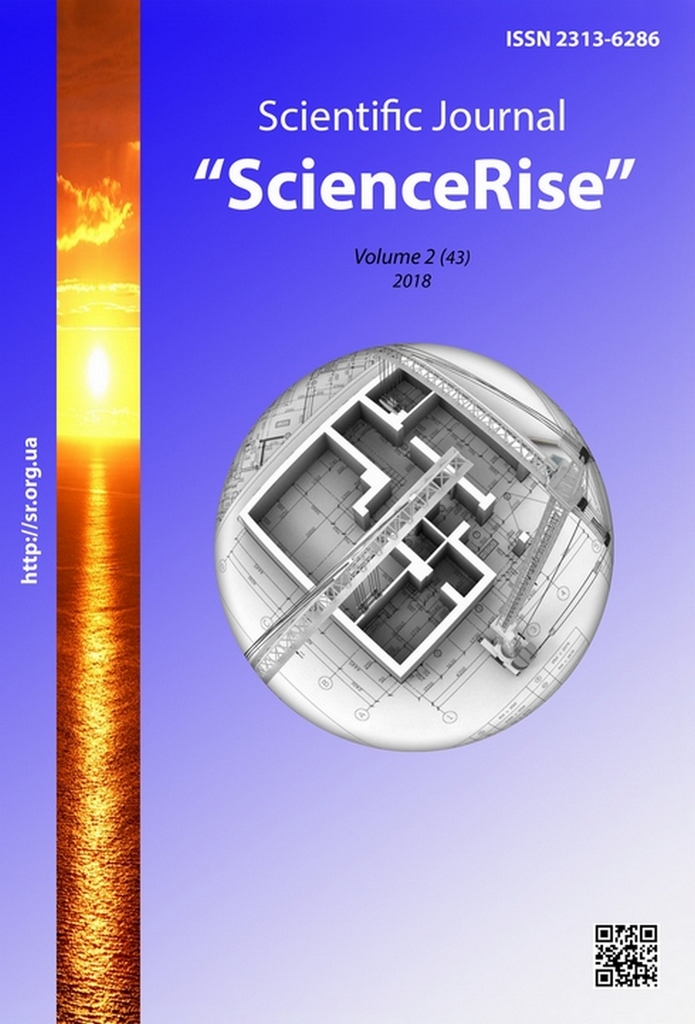Psychological approach to understanding of the subsistence right and the right to health of the individual
DOI:
https://doi.org/10.15587/2313-8416.2018.124371Keywords:
right, life, health, value, terrorism, terrorist, psychological, interdisciplinary, non-property, personalAbstract
This research reveals and represents the theoretical issues of the interdisciplinary approach to the definition of the role and place of the subsistence right and the right to health of the individual under the conditions of the terrorism.
It is ascertained that the problems of the consequences of terrorism are not actually examined in the Ukrainian psychological science, jurisprudence and judicial practice.
A psychological reconsideration of the value of life is offered with the aim of bringing out this right from a purely professional, legal understanding and its propagation and use in the everyday existence of a person
References
Mun'ye, E. (1999). Manifest personalizma [Manifesto of personalism] Moscow: Respublika, 559.
Ortega-i-Gasset, Kh.; Rutkevich, A. M. (Ed.) (1997). Izbrannyye trudy [Selected Works]. Moscow: «Ves' mir», 704.
Kokhanovska, O. V. (2010). Osobysti nemayinovi prava fizichnykh osib yak institut tcyvilnogo prava Ukrainy [Personal non-property rights of individuals as an institution of civil law of Ukraine]. Visnyk Kyivs’kogo natcionalnogo universitetu imeni Tarasa Shevchenka, 4–6.
Stefanchuk, R. O.; Shevchenko, Ya. M. (Ed.) (2008). Osobysti nemainovi prava fizychnykh osib (poniattia, zmist, systema, osoblyvosti zdiysnennia ta zakhystu) [Personal non-property rights of individuals]. Kyiv: KNT, 626.
Agarkov, M. M. (2005). Pravo na imya [The right to a name]. Sbornik statey po grazhdanskomu i torgovomu pravu. Pamyati professora Gabrielya Feliksovicha Shershenevicha. Moscow: Statut, 136–162.
Alekseyev, S. S. (2000). Pravo na poroge novogo tysyacheletiya: nekotoryye tendentsii mirovogo pravovogo razvitiya – nadezhda i drama sovremennoy epokhi [Right on the Threshold of the New Millennium: Some Trends in World Legal Development – Hope and Drama of the Modern Epoch]. Moscow: Statut, 256.
Ioffe, O. S. (1966). Lichnye neimushchestvennyye prava i ikh mesto v sisteme sovetskogo grazhdanskogo prava [Personal non-property rights and their place in the system of Soviet civil law]. Sovetskoye gosudarstvo i parvo, 7, 51–59.
Krasavchikova, L. O. (1994). Ponyatiye i sistema lichnykh neimushchestvennykh prav grazhdan (fizicheskikh lits) v grazhdanskom prave Rossiyskoy Federatsii [The concept and system of personal non-property rights of citizens (individuals) in the civil law of the Russian Federation]. Yekaterinburg: Izd-vo Ural. yurid. Akad. 199.
Maleina, M. S. (2000). Lichnyye neimushchestvennyye prava grazhdan: ponyatiye, osushchestvleniye, zashchita [Personal non-property rights of citizens: concept, implementation, protection]. Mosocw: MZ Press. 242.
Kockanovska, O. V. (2011). Osobysti nemaynovi prava, shcho zabezpechuyut’ pryrodne isnuvannya fizychnoyi osoby yak uosoblennya zakhystu prav i osnovnykh svobod lyudyny v suchasniy Ukrayin [Personal non-property rights that ensure the natural existence of an individual as a personification of the protection of human rights and fundamental freedoms in modern Ukraine]. Visnyk Kyivs’kogo natsional’nogo universytetu imeni Tarasa Shevchenka, 7–10.
Erdelevskiy, A. M. (1998). Moralniy vred i kompensatsiya za stradaniya [Mental harm and compensation for suffering]. Moscow: VEK, 188.
Yegorov, K. F. (1953). Lichnye neimushchestvennye prava grazhdan SSSR [Personal non-property rights of citizens of the USSR]. Voprosy sovetskogo prava. Uchenye zapiski, 4, 139–157.
Freyd, Z. (2008). Psikhologiya bessoznatel'nogo [Psychology of the unconscious]. Moscow; Sankt-Peterburg: Piter, 400.
Yung, K. G. (2007). Soznaniye i bessoznatel'noye [Consciousness and the unconscious]. Moscow: Akademicheskiy Proyekt, 190.
Fromm, E. (1998). Begstvo ot svobody. Chelovek dlya sebya [Flight from freedom. Man for himself]. Minsk: Popurri, 672.
Lebon, G. (1995). Psikhologiya narodov i mass [Psychology of the peoples and the masses]. Sankt-Peterburg: Maket, 316.
Сharter of the World Health Organization 22.07.46. Available at: http://zakon0.rada.gov.ua/laws/show/995_599
Constitution of Ukraine. Available at: http://www.president.gov.ua/documents/constitution
The Civil Code of Ukraine. Available at: http://zakon3.rada.gov.ua/laws/show/435-15/print
Petrazhickiy, L. I. (1908). Vvedenie v izuchenie prava i nravstvennosti. Osnovy emocional'noy psihologi [Introduction to the study of law and morality. Fundamentals of emotional psychology]. Sankt-Peterburg, 271.
Universal Declaration of Human Rights 10.12.48. Available at: http://zakon2.rada.gov.ua/laws/show/995_015
Konventsiya pro zakhyst prav liudyny i osnovopolozhnykh svobod vid 04.11.50. Available at: http://zakon3.rada.gov.ua/laws/show/995_004
Mizhnarodnyi pakt pro hromadianski i politychni prava vid 19.10.73. Available at: http://zakon0.rada.gov.ua/laws/show/995_043
Dzera, O. V. (Ed.) (2010). Tcyvilne pravo Ukrainy. Osoblyva chastyna [Civil Law of Ukraine. A special part]. Kyiv: Jurinkom Inter, 1176.
Abramova, E. N., Averchenko, N. N.; Sergeev, A. H. (Ed.) (2009). Grazhdanskoe parvo [Civil of Law]. Vol. 1. Moscow: TK Velbi, 411.
Golubev, K. I., Narizhniy, S. V. (2004). Kompensaciya moral'nogo vreda kak sposob zashchity neimushchestvennyh blag lichnosti [Compensation for moral harm as a way to protect non-property personal benefits]. Sankt-Peterburg: Yuridicheskiy centr Press, 43.
Psykholohichna entsyklopediya [Encyclopedia of Psychology] (2006). Kyiv: Akademvydav, 178.
Downloads
Published
Issue
Section
License
Copyright (c) 2018 Khrystyna Solodovnikova

This work is licensed under a Creative Commons Attribution 4.0 International License.
Our journal abides by the Creative Commons CC BY copyright rights and permissions for open access journals.
Authors, who are published in this journal, agree to the following conditions:
1. The authors reserve the right to authorship of the work and pass the first publication right of this work to the journal under the terms of a Creative Commons CC BY, which allows others to freely distribute the published research with the obligatory reference to the authors of the original work and the first publication of the work in this journal.
2. The authors have the right to conclude separate supplement agreements that relate to non-exclusive work distribution in the form in which it has been published by the journal (for example, to upload the work to the online storage of the journal or publish it as part of a monograph), provided that the reference to the first publication of the work in this journal is included.

